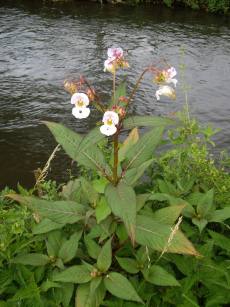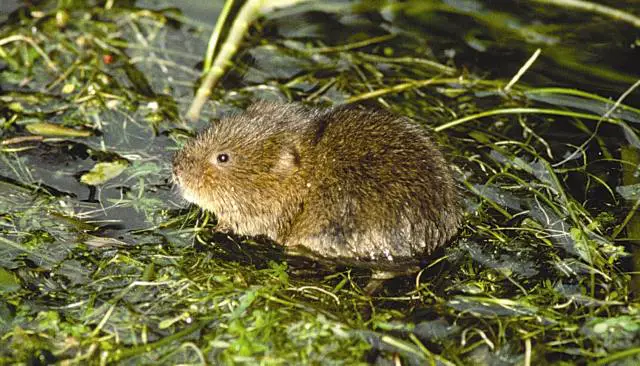Thanks to Peter from the Hampshire & Isle of Wight Wildlife Trust for sharing this important news with On The Wight readers. Ed
During summer 2012 the Hampshire & Isle of Wight Wildlife Trust carried out water vole surveys on the River West Yar, East Yar and the Gunville Stream.
Worryingly, these and previous surveys carried out in 2003 and 2008 by the Wildlife Trust, have shown us that water voles on the Island are declining in some areas due to a loss of suitable bank-side habitat and now also because of the rapid spread of Himalayan balsam along some of the Island’s rivers.
The importance of Ratty
One of the Island’s most important wetland species is the water vole. Famously known as “Ratty”, the amiable character in Kenneth Grahame’s The Wind in the Willows, the water vole is now the fastest declining mammal in Britain.
This is mainly due to predation by the American mink. Fortunately the Island doesn’t have any mink and so water voles have historically remained relatively abundant here and the population is of national significance.
Less Water Voles in areas with Himalayan balsam
Himalayan balsam is a non-native invasive wetland plant which grows in tall, dense patches where it prevents the native food plants of the water vole from growing.
 In partnership with Bournemouth University and the Environment Agency, the Hampshire & Isle of Wight Wildlife Trust have found that numbers of water vole decrease where Himalayan balsam plants have spread to cover more than 10m of river bank.
In partnership with Bournemouth University and the Environment Agency, the Hampshire & Isle of Wight Wildlife Trust have found that numbers of water vole decrease where Himalayan balsam plants have spread to cover more than 10m of river bank.
Nicola Wheeler, Ponds and Wetlands Officer at the Wildlife Trust said, “It is of particular concern at many sites within the East Yar river valley which has historically been a stronghold for water voles on the Island.”
Volunteers can help
In partnership with the Non-native Species Local Action Group, work began in 2012 to pull up Himalayan balsam at sites along the East Yar. More work to tackle this problem plant is planned for spring and summer 2013 where volunteers can help to improve habitat for water voles at Sandown Meadows Nature Reserve, which has recently been acquired by the Wildlife Trust thanks to a generous legacy donation.
For more information, or if you would like to get involved in Himalayan balsam pulling work parties, please contact Nicola Wheeler at the Wildlife Trust on nicolaw@hwt.org.uk or call 01983 760016.




